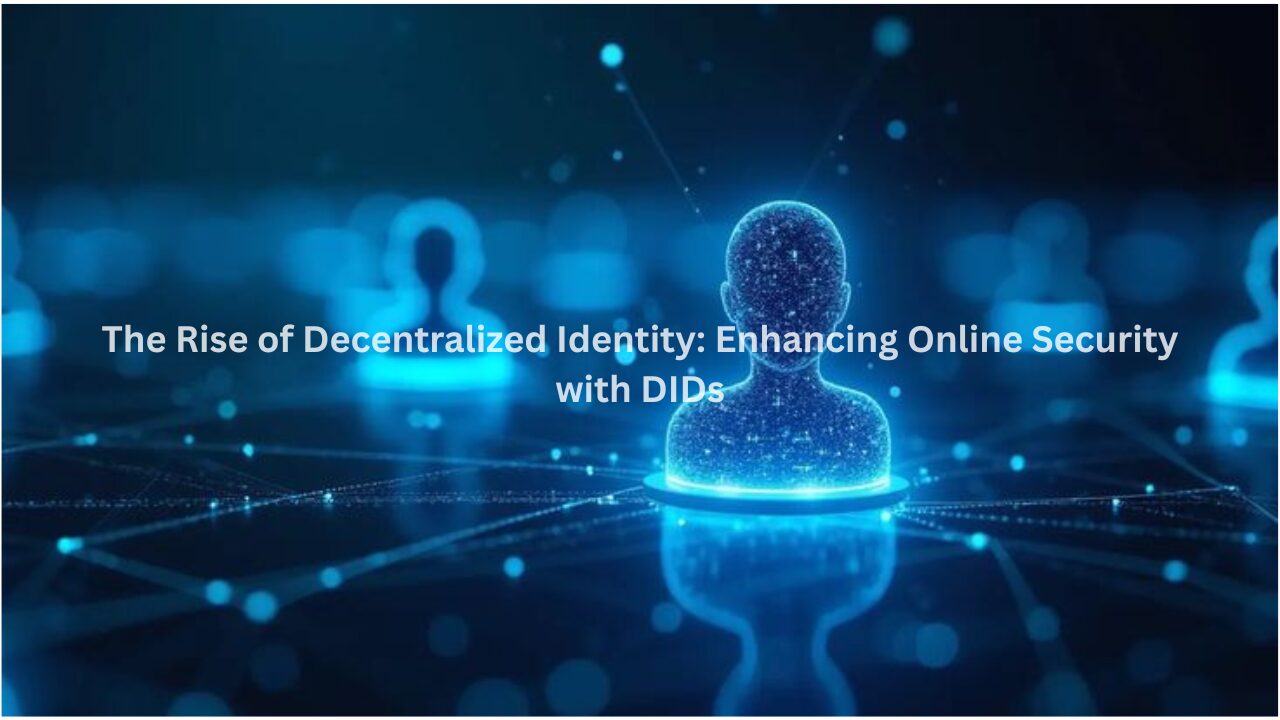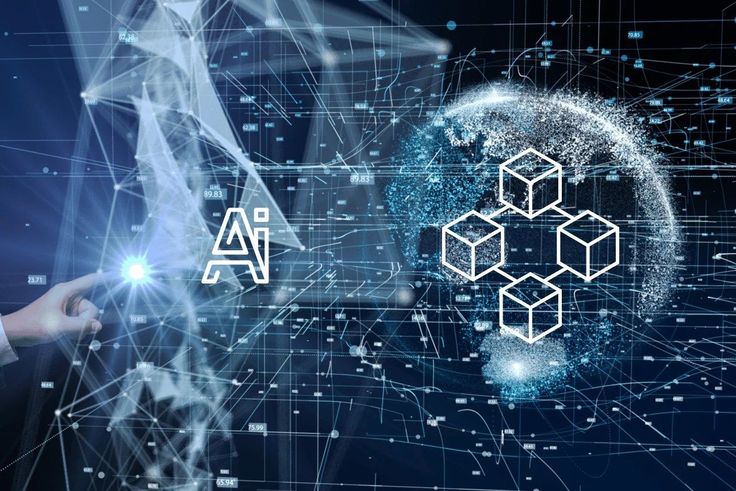Since 2020, centralized identity systems have been responsible for massive security breaches that singlehandedly exposed the sensitive data of over millions.
Strikingly, security data breaches set a new record in 2024 as the number of breach alerts surpassed 1.3 billion. This marked a terrifying 211% year-over-year increase. With the average breach costing $4.8 million, it is absolutely vital for new solutions.
Enters Decentralized Identifiers (DIDs), a game-changing form of digital security. Unlike normal IDs, DIDs allow an individual to take control not only of their personal data but also of digitally secure data stored on networks like blockchains.
This revolutionary method seeks to empower users to regain control of their private information while effectively protecting them from potential cyber threats through safer methods to manage their digital identities.
Understanding Decentralized Identity (DID)
Imagine controlling every aspect of your digital identity without having to rely on a conglomerate to look after your details. That is what Decentralized Identifiers (DIDs) provide.
As opposed to traditional identifiers such as emails or usernames which other people can control, DIDs can be created and handled by yourself.
By having this capability, control over online identity is put in one’s hands, resulting in heightened privacy and secrecy. No longer do people have to break into data from one central authority with the worry of having their information hacked.
User-level control with DIDs ensures people are safe and secure while navigating the web like never before. This is merely a transition that is more straightforward toward additional control.
The Limitations of Centralized Identity Systems
In the world that we reside in today, centralized identity systems have become standard practice. Maintained by entities where associates’ information such as names, addresses, and payment details are stored. Though helpful to online users, the approach is often negatively focused.
Vulnerability to Data Breaches
Cyber-attacks often target centralized databases. These databases, when full of personal information, are even more vulnerable to breaches. For instance, the cybercriminals who attacked Blue Shield of California in 2024 made off with the personal health data of 4.7 million members to Google Ads due to a misconfiguration in Google Analytics
Such breaches don’t come cheap either – an expensive ransom is guaranteed. Losing business, regulatory fines, and response efforts after such breaches add up to the average cost of a data breach which rose to $4.88 million in 2024 and increased by 10% from the previous year.
Privacy Concerns
Many people lack control over their identity documentation due to centralized identity systems. Organizations controlling such systems may disclose, sell, or misuse the data without formal approval.
This absence of clarity raises serious concerns about data ethics and user privacy rights. Trust is eroded as personal information gets commodified instead of treated as a valuable protected resource. This growing concern is likely to change these privacy-ignoring practices and foster demand for transparent privacy-centric solutions.
Single Point of Failure
Centralized systems place a dangerous amount of trust in a single entity. Technical problems, security breaches, and financial breakdowns trigger massive problems for everyone whose data is included.
With a single point of failure, streamlined access to millions of records and associated services becomes unachievable or permanently disabled.
Unfortunately, these are common disadvantages for centralized systems. Relying exclusively on centralized systems zones out a very important factor in today’s world; reliability and resiliency.
The Advantages of Decentralized Identity
As we’ve seen, centralized identity systems come with inherent risks and challenges. The use of DIDs considerably diversifies the options available that enhance security while giving users more control.
Enhanced Security and Privacy
In comparison to a centralized system, your sensitive information is not kept in a central registry or database structured as a single entity which makes it liable to hacks.
Rather, it is kept safe in your digital wallet, where it can only be accessed with your private keys. This approach significantly reduces the risk of large-scale data breaches and unauthorized access. Additionally, DIDs enable selective disclosure, giving the ability to present only the relevant information while concealing any additional private data.
User Control and Autonomy
With the adoption of DIDs, you now have absolute control over your digital identity. The matter of sharing information, including what to share and with whom, is entirely in your hands and is governed by your discretion.
You are able to manage your personal data without the need for third-party service providers on whom you would otherwise have to depend on in this identity model.
Interoperability Across Platforms
Different services and platforms can be easily integrated with decentralized identity systems allowing for effortless transitions. A relatively single DID may grant access to multifaceted activities like obtaining healthcare, online banking, and social network interactions which improves the user’s experience by streamlining their technical engagements.
Improved Compliance and Trust
Companies that implement decentralized identity solutions can better comply with various privacy guidelines and systems like GDPR, or CCPA. Since DIDs minimize the collection and storage of personal data, they reduce the risk of regulatory violations and build greater trust with users.
Real-life use cases of Decentralized Identity
Decentralized Identifiers (DIDs) are not merely theoretical ideas, they are currently in use in different sectors throughout the world as they improve security, privacy, and control for users.
Healthcare: Empowering Patients and Streamlining Processes
DIDs are changing the sharing and management of patient data in the healthcare service. For example, the UK’s National Health Service (NHS) has put into place a system of devolved identities that allows healthcare providers to keep their credentials on their devices.
Not only does this enhance HR efficiency, but it also minimizes the risk of sensitive information being leaked because it is still in the possession of the individual.
Finance: Simplifying Compliance and Enhancing Trust
To fight fraud, financial institutions are using DIDs to ease customer verification (KYC) processes. Banks no longer have to navigate through excessive information to verify identity since clients can now provide W3C’s verifiable credentials. This increases the trust between customers and financial service providers since personal information is safeguarded.
Government Services: Facilitating Secure and Inclusive Access
China’s residents can use online services via RealDID which permits absolute anonymity on the Internet using decentralized identifiers while conforming with laws on real-name registration. Similarly, Brazil alongside Kenya are creating mobile-first pilot projects for DIDs targeting underserved populations to advance inclusion in the digital world.
Education: Verifying Credentials and Preventing Fraud
DIDs are being adopted by educational institutions to issue and verify academic credentials. A case in point is the partnership between Microsoft and Keio University of Tokyo where students can now obtain diplomas through decentralized identity wallets. This system guarantees the integrity of the qualifications as well as easy verification by employers and other institutions.
Challenges to Adoption: Why DIDs Aren’t Mainstream Yet
While Decentralized Identifiers (DIDs) offer promising solutions for digital identity management, their widespread adoption faces several hurdles. Let’s explore some of the key challenges:
Limited Awareness and Understanding
Many individuals and organizations are still unfamiliar with the concept of decentralized identity. This lack of awareness can lead to hesitation in adopting new systems, especially when the benefits are not immediately clear. Educational initiatives are essential to bridge this knowledge gap and demonstrate the value of DIDs.
Technical Complexity
Implementing decentralized identity systems requires a solid understanding of blockchain technology, cryptography, and related infrastructures. For many organizations, this technical barrier can be daunting, leading to reluctance to transition from traditional systems.
Regulatory and Legal Uncertainties
The legal landscape for decentralized identities is still evolving. In many jurisdictions, there is a lack of clear regulations or recognition of DIDs and verifiable credentials. This uncertainty can deter organizations from investing in or adopting these systems.
Interoperability Issues
For decentralized identity systems to be effective, they need to work seamlessly across various platforms and services. Currently, differing standards and protocols can hinder this interoperability, making it challenging for users to have a unified digital identity experience.
What Lies Ahead?
Decentralized identity is steadily moving from concept to reality, offering individuals greater control over their personal data.
As technology evolves and awareness grows, we can expect broader adoption across various sectors.
While challenges like interoperability and regulatory frameworks remain, collaborative efforts are paving the way for more secure and user-centric digital interactions. Embracing a decentralized identity could lead to a future where online privacy and autonomy are not just ideals but standard practices.






